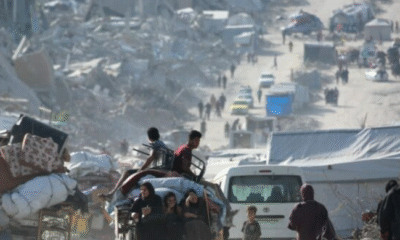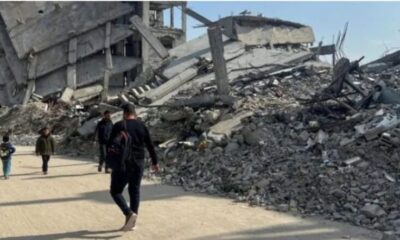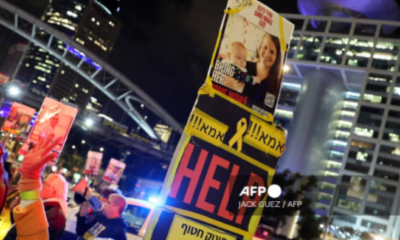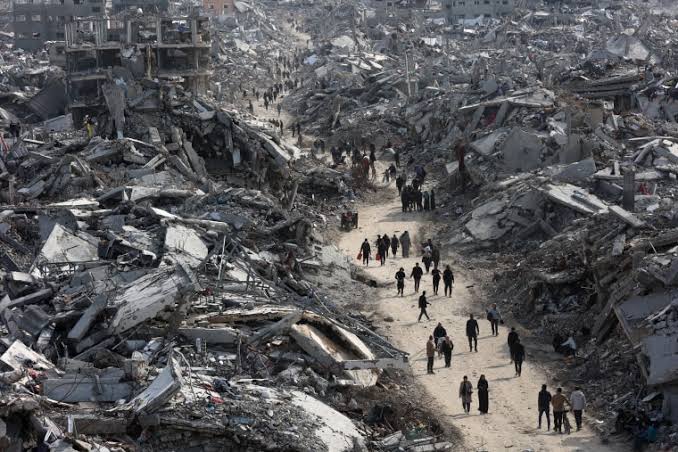National News
Israeli military chief resigns over October 7 Hamas attack
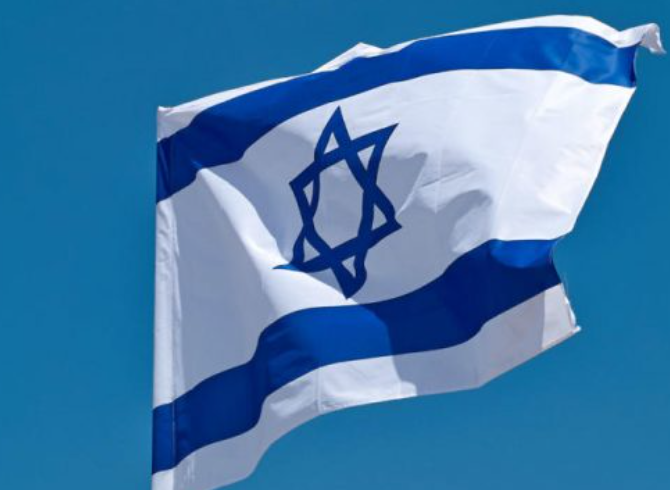
The head of Israel’s military, Lit-Gen Herzi Halevi, resigned on Tuesday, taking responsibility for the military’s failure to prevent the Hamas attack on October 7, 2024, just days after a fragile truce took effect following 15 months of war in the Gaza Strip.
In his resignation letter, released by the army, Halevi stated that he was stepping down “due to my acknowledgement of responsibility for the military’s failure on October 7,” but added that he was leaving at a time of “significant successes.”
He acknowledged, however, that the goals of the Gaza war “have not all been achieved,” adding that the army would “continue to fight to further dismantle Hamas,” return the hostages, and enable Israelis displaced by militant attacks to return home.
Shortly after his announcement, Maj-Gen. Yaron Finkelman, who headed Israel’s southern military command, also resigned. The command is responsible for Gaza.
Hamas’s attack, the deadliest in Israel’s history, resulted in the deaths of 1,210 people, mostly civilians, according to an AFP tally of official Israeli figures.
It sparked a war that has devastated much of Gaza, with the Hamas-run health ministry reporting 47,107 deaths, the majority of them civilians—figures the United Nations has deemed reliable.
In a televised address hours after announcing his resignation, Halevi said Israel’s campaign had killed “nearly 20,000 Hamas operatives.”
The October 7 attack, which also saw 251 people taken hostage, traumatised Israelis and created an unprecedented crisis for the country’s top leadership.
Ninety-one hostages remain in captivity, 34 of whom the military says are dead.
Prime Minister Benjamin Netanyahu had vowed early in the war to crush Hamas and bring all the hostages home.
Israeli opposition leader Yair Lapid on Tuesday called on Netanyahu to follow Halevi’s example. Lapid praised the military chief for stepping down, adding: “Now, it is time for them to take responsibility and resign—the prime minister and his entire catastrophic government.”
Truce and Peace Efforts
After months of fruitless negotiations, mediators Qatar and the United States announced a ceasefire that took effect on Sunday, just before Donald Trump’s inauguration as US president.
Trump, who claimed credit for the agreement, said he doubted the deal would hold as he took office for a historic second term. “That’s not our war; it’s their war. But I’m not confident,” he said.
However, Qatari Prime Minister Sheikh Mohammed bin Abdulrahman bin Jassim Al-Thani told the World Economic Forum on Tuesday that if Israel and Hamas acted “in good faith, this will last and hopefully lead to a permanent ceasefire.”
Since the truce took effect, desperately needed humanitarian aid has begun to flow into Gaza, and Palestinians displaced by the war have started returning to their homes in devastated areas of the territory, hopeful the agreement will hold.
Displaced Gazan Ghadeer Abdul Rabbo, 30, told AFP she hoped that “with or without Trump,” the ceasefire would hold and world governments would help “maintain this calm because we are afraid.”
The truce has so far seen Israel and Hamas conduct one exchange of hostages for prisoners.
Hamas official Taher al-Nunu told AFP that another four Israeli women hostages would be freed on Saturday in exchange for a second group of Palestinian prisoners.
Humanitarian Aid and Reconstruction Plans
If all goes to plan, a total of 33 hostages will be returned from Gaza in exchange for around 1,900 Palestinians during the 42-day first phase of the truce.
Over these six weeks, the parties are meant to negotiate a permanent ceasefire.
In the final phase, militants would return the bodies of dead hostages, and the reconstruction of Gaza would begin.
UK Prime Minister Keir Starmer spoke to Netanyahu by phone about the ceasefire on Tuesday, with both agreeing “that we must work towards a permanent and peaceful solution that guarantees Israel’s security,” according to a British readout of the conversation.
Starmer also told Netanyahu that Britain was “ready to do everything it can to support a political process, which should also lead to a viable and sovereign Palestinian state.”
The first day of the truce saw three Israeli hostages, all women reunited with their families after more than 15 months in captivity. One of them, Emily Damari, was a British-Israeli dual national.
Hours later, 90 Palestinian prisoners were released from an Israeli jail.
The war has devastated much of the Gaza Strip and displaced the vast majority of its population of 2.4 million.
More than 900 trucks carrying humanitarian aid entered Gaza on Monday, the United Nations said.
In Rafah, southern Gaza, Ismail Madi said, “We have endured immense hardships, but we will stay here. We will rebuild this place.”
While there was quiet in Gaza, violence flared in the occupied West Bank, with the Israeli military launching a deadly operation in Jenin, a bastion of Palestinian militancy.
The Palestinian health ministry, based in Ramallah, said the operation had killed 10 people.
AFP
-

 Politics1 day ago
Politics1 day agoWhy Tinubu’s APC must go in 2027– Atiku, El-Rufai, Amaechi
-

 National News1 day ago
National News1 day agoJune 2025: See full list of public holidays in Nigeria
-

 Metro News2 days ago
Metro News2 days agoTragedy as popular Oyo traditional ruler passes away
-

 National News1 day ago
National News1 day agoBreaking: 19 confirmed dead as team Kano contingent bus from Abeokuta crashes
-

 Politics1 day ago
Politics1 day ago2027: Northern democrats proposes new party for anti-Tinubu coalition
-

 Metro News2 days ago
Metro News2 days agoBreaking: Tension as petrol tanker falls on busy Ibadan road
-

 Education1 day ago
Education1 day agoSAZU unveils Career Service Centre, Entrepreneurship Development Centre, commissions 500KVA generator
-

 Metro News1 day ago
Metro News1 day agoBauchi: Bulus hails Tinubu for appointing Dogara as NCGC chair


